Privacy policy
Preamble
With the following privacy policy, we would like to inform you about what types of your personal data (hereinafter also referred to as "data") we process, for what purposes and to what extent. The privacy policy applies to all processing of personal data carried out by us, both in the context of the provision of our services and in particular on our websites, in mobile applications and within external online presences, such as our social media profiles (hereinafter collectively referred to as "online offer").
The terms used are not gender-specific.
Status: February 29, 2024
Table of contents
- Preamble
- Person responsible
- Overview of processing
- Relevant legal bases
- Security measures
- International data transfers
- Rights of the data subjects
- Use of cookies
- Performing tasks in accordance with the articles of association or rules of procedure
- Business services
- Provision of the online offer and web hosting
- Blogs and publication media
- Contact and inquiry management
- Communication via Messenger
- Video conferences, online meetings, webinars and screen sharing
- Application procedure
- Newsletter and electronic notifications
- Advertising communication via e-mail, post, fax or telephone
- Web analysis, monitoring and optimization
- Online marketing
- Presence in social networks (social media)
Person responsible
Ernst Seemann GmbH,
represented by the managing partner
Thomas Philipp Reiter
Herbesthaler Str. 321, B-4700 Eupen
datenschutz@seemann.be
Overview of processing
The following overview summarizes the types of data processed and the purposes of their processing and refers to the data subjects.
Types of data processed
- Inventory data.
- Payment data.
- Contact details.
- Content data.
- Contract data.
- Usage data.
- Meta, communication and process data.
- Applicant data.
- Event data (Facebook).
Categories of affected persons
- Interested parties.
- Communication partner.
- Users.
- Applicants.
- Members.
- Business and contractual partners.
- Persons depicted.
Purposes of the processing
- Provision of contractual services and fulfillment of contractual obligations.
- Contact requests and communication.
- Safety measures.
- Direct marketing.
- Reach measurement.
- Tracking.
- Office and organizational procedures.
- Conversion measurement.
- Target group formation.
- Managing and responding to inquiries.
- Application procedure.
- Feedback.
- Marketing.
- Profiles with user-related information.
- Provision of our online services and user-friendliness.
- Information technology infrastructure.
Relevant legal bases
Relevant legal bases under the GDPR: Below you will find an overview of the legal bases of the GDPR on the basis of which we process personal data. Please note that in addition to the provisions of the GDPR, national data protection regulations may apply in your or our country of residence or domicile. Should more specific legal bases also apply in individual cases, we will inform you of these in the privacy policy.
- Consent (Art. 6 para. 1 sentence 1 lit. a) GDPR) - The data subject has given their consent to the processing of their personal data for one or more specific purposes.
- Performance of a contract and pre-contractual inquiries (Art. 6 para. 1 sentence 1 lit. b) GDPR) - Processing is necessary for the performance of a contract to which the data subject is party or in order to take steps at the request of the data subject prior to entering into a contract.
- Legal obligation (Art. 6 para. 1 sentence 1 lit. c) GDPR) - Processing is necessary for compliance with a legal obligation to which the controller is subject.
- Legitimate interests (Art. 6 para. 1 sentence 1 lit. f) GDPR) - Processing is necessary for the purposes of the legitimate interests pursued by the controller or by a third party, except where such interests are overridden by the interests or fundamental rights and freedoms of the data subject which require protection of personal data.
- Application procedure as a pre-contractual or contractual relationship (Art. 6 para. 1 sentence 1 lit. b) GDPR) - Insofar as special categories of personal data within the meaning of Art. 9 para. 1 GDPR are requested from applicants as part of the application procedure (e.g. health data, such as severely disabled status or ethnic origin) are requested from applicants so that the controller or the data subject can exercise their rights under labor law and social security and social protection law and fulfill their obligations in this regard, their processing is carried out in accordance with Art. 9 para. 2 lit. b. GDPR. GDPR, in the case of the protection of vital interests of applicants or other persons pursuant to Art. 9 para. 2 lit. c. GDPR or for the purposes of preventive health care or occupational medicine, for the assessment of the employee's ability to work, for medical diagnosis, care or treatment in the health or social sector or for the management of systems and services in the health or social sector pursuant to Art. 9 para. 2 lit. h. GDPR. In the case of communication of special categories of data based on voluntary consent, their processing is carried out on the basis of Art. 9 para. 2 lit. a. GDPR.
National data protection regulations in Germany: In addition to the data protection regulations of the GDPR, national data protection regulations apply in Germany. These include, in particular, the Act on the Protection against Misuse of Personal Data in Data Processing (Federal Data Protection Act - BDSG). In particular, the BDSG contains special regulations on the right to information, the right to erasure, the right to object, the processing of special categories of personal data, processing for other purposes and transmission as well as automated decision-making in individual cases, including profiling. The data protection laws of the individual federal states may also apply.
Note on the applicability of the GDPR and Swiss FADP: This data protection notice serves to provide information in accordance with both the Swiss Federal Act on Data Protection (FADP) and the General Data Protection Regulation (GDPR). For this reason, please note that the terms of the GDPR are used due to the broader geographical application and comprehensibility. In particular, instead of the terms "processing" of "personal data", "overriding interest" and "sensitive personal data" used in the Swiss DPA, the terms "processing" of "personal data", "legitimate interest" and "special categories of data" used in the GDPR are used. However, the legal meaning of the terms will continue to be determined in accordance with the Swiss DPA within the scope of application of the Swiss DPA.
Security measures
We take appropriate technical and organizational measures in accordance with the legal requirements, taking into account the state of the art, the implementation costs and the nature, scope, circumstances and purposes of the processing as well as the different probabilities of occurrence and the extent of the threat to the rights and freedoms of natural persons, in order to ensure a level of protection appropriate to the risk.
The measures include, in particular, safeguarding the confidentiality, integrity and availability of data by controlling physical and electronic access to the data as well as the access, input, disclosure, safeguarding of availability and its separation. Furthermore, we have established procedures that ensure the exercise of data subject rights, the deletion of data and responses to data threats. Furthermore, we already take the protection of personal data into account during the development or selection of hardware, software and processes in accordance with the principle of data protection, through technology design and through data protection-friendly default settings.
International data transfers
Data processing in third countries: If we process data in a third country (i.e. outside the European Union (EU), the European Economic Area (EEA)) or the processing takes place in the context of the use of third-party services or the disclosure or transfer of data to other persons, bodies or companies, this will only take place in accordance with the legal requirements. If the level of data protection in the third country has been recognized by means of an adequacy decision (Art. 45 GDPR), this serves as the basis for the data transfer. Otherwise, data will only be transferred if the level of data protection is otherwise ensured, in particular through standard contractual clauses (Art. 46 para. 2 lit. c) GDPR), express consent or in the case of contractual or legally required transfer (Art. 49 para. 1 GDPR). In addition, we will inform you of the basis for third country transfers with the individual providers from the third country, whereby the adequacy decisions take precedence. Information on third country transfers and existing adequacy decisions can be found in the information provided by the EU Commission: https://commission.europa.eu/law/law-topic/data-protection/international-dimension-data-protection_en?prefLang=de.
EU-US Trans-Atlantic Data Privacy Framework: As part of the so-called "Data Privacy Framework" (DPF), the EU Commission has also recognized the level of data protection for certain companies from the USA as secure as part of the adequacy decision of 10.07.2023. The list of certified companies and further information on the DPF can be found on the website of the US Department of Commerce at https://www.dataprivacyframework.gov/. As part of the data protection information, we will inform you which service providers we use are certified under the Data Privacy Framework.
Rights of the data subjects
Rights of data subjects under the GDPR: As a data subject, you are entitled to various rights under the GDPR, which arise in particular from Art. 15 to 21 GDPR:
- Right to object: You have the right to object, on grounds relating to your particular situation, at any time to processing of personal data concerning you which is based on point (e) or (f) of Article 6(1) GDPR, including profiling based on those provisions. If the personal data concerning you are processed for direct marketing purposes, you have the right to object at any time to the processing of personal data concerning you for such marketing, which includes profiling to the extent that it is related to such direct marketing.
- Right to withdraw consent: You have the right to withdraw your consent at any time.
- Right of access: You have the right to obtain confirmation as to whether or not personal data concerning you is being processed and to obtain information about this data and further information and a copy of the data in accordance with the legal requirements.
- Right to rectification: In accordance with the statutory provisions, you have the right to request the completion of data concerning you or the rectification of inaccurate data concerning you.
- Right to erasure and restriction of processing: In accordance with the statutory provisions, you have the right to demand that data concerning you be erased immediately or, alternatively, to demand that the processing of the data be restricted in accordance with the statutory provisions.
- Right to data portability: You have the right to receive the data concerning you, which you have provided to us, in a structured, commonly used and machine-readable format in accordance with the legal requirements or to request its transmission to another controller.
- Complaint to a supervisory authority: In accordance with the statutory provisions and without prejudice to any other administrative or judicial remedy, you also have the right to lodge a complaint with a data protection supervisory authority, in particular a supervisory authority in the Member State in which you are habitually resident, the supervisory authority of your place of work or the place of the alleged infringement, if you consider that the processing of personal data relating to you infringes the GDPR.
Use of cookies
Cookies are small text files or other storage notes that store information on end devices and read information from the end devices. For example, to store the login status in a user account, the contents of a shopping cart in an e-shop, the content accessed or the functions used in an online offering. Cookies can also be used for various purposes, e.g. to ensure the functionality, security and convenience of online services and to analyze visitor flows.
Notes on consent: We use cookies in accordance with the statutory provisions. We therefore obtain prior consent from users, unless this is not required by law. In particular, consent is not required if the storage and reading of information, including cookies, is absolutely necessary in order to provide the user with a telemedia service expressly requested by them (i.e. our online offer). Strictly necessary cookies generally include cookies with functions that serve the display and operability of the online service, load balancing, security, storage of user preferences and selection options or similar purposes related to the provision of the main and secondary functions of the online service requested by the user. The revocable consent is clearly communicated to the users and contains the information on the respective use of cookies.
Information on legal bases under data protection law: The legal basis under data protection law on which we process users' personal data with the help of cookies depends on whether we ask users for their consent. If users give their consent, the legal basis for processing their data is their declared consent. Otherwise, the data processed using cookies will be processed on the basis of our legitimate interests (e.g. in the commercial operation of our online offering and improving its usability) or, if this is done in the context of fulfilling our contractual obligations, if the use of cookies is necessary to fulfill our contractual obligations. We will explain the purposes for which we process cookies in the course of this privacy policy or as part of our consent and processing procedures.
Storage period: With regard to the storage period, a distinction is made between the following types of cookies:
- Temporary cookies (also: session cookies): Temporary cookies are deleted at the latest after a user has left an online service and closed their end device (e.g. browser or mobile application).
- Permanent cookies: Permanent cookies remain stored even after the end device is closed. For example, the login status can be saved or preferred content can be displayed directly when the user visits a website again. The user data collected with the help of cookies can also be used to measure reach. If we do not provide users with explicit information on the type and storage duration of cookies (e.g. when obtaining consent), users should assume that cookies are permanent and can be stored for up to two years.
General information on revocation and objection (so-called "opt-out"): Users can revoke the consent they have given at any time and object to processing in accordance with the legal requirements. Among other things, users can restrict the use of cookies in their browser settings (although this may also restrict the functionality of our online offering). An objection to the use of cookies for online marketing purposes can also be declared via the websites https://optout.aboutads.info and https://www.youronlinechoices.com/.
- Legal bases: Legitimate interests (Art. 6 para. 1 sentence 1 lit. f) GDPR). Consent (Art. 6 para. 1 sentence 1 lit. a) GDPR).
Further information on processing operations, procedures and services:
- Processing of cookie data on the basis of consent: We use a consent management solution in which user consent is obtained for the use of cookies or for the procedures and providers mentioned in the consent management solution. This procedure is used to obtain, log, manage and revoke consent, in particular with regard to the use of cookies and comparable technologies that are used to store, read and process information on users' end devices. As part of this procedure, user consent is obtained for the use of cookies and the associated processing of information, including the specific processing and providers mentioned in the consent management procedure. Users also have the option of managing and revoking their consent. The declarations of consent are stored in order to avoid repeated queries and to be able to provide proof of consent in accordance with legal requirements. The storage takes place on the server side and/or in a cookie (so-called opt-in cookie) or by means of comparable technologies in order to be able to assign the consent to a specific user or their device. If no specific information on the providers of consent management services is available, the following general information applies: Consent is stored for up to two years. A pseudonymous user identifier is created, which is stored together with the time of consent, information on the scope of consent (e.g. relevant categories of cookies and/or service providers) and information on the browser, the system and the end device used; legal basis: consent (Art. 6 para. 1 sentence 1 lit. a) GDPR).
Performing tasks in accordance with the articles of association or rules of procedure
We process the data of our members, supporters, interested parties, business partners or other persons (collectively "data subjects") if we have a membership or other business relationship with them and perform our tasks and are recipients of services and benefits. Otherwise, we process the data of data subjects on the basis of our legitimate interests, e.g. in the case of administrative tasks or public relations work.
The data processed in this context, the type, scope and purpose and the necessity of their processing are determined by the underlying membership or contractual relationship, from which the necessity of any data information also arises (otherwise we refer to required data).
We delete data that is no longer required to fulfill our statutory and business purposes. This is determined according to the respective tasks and contractual relationships. We retain the data for as long as it may be relevant for business transactions and with regard to any warranty or liability obligations based on our legitimate interest in their regulation. The necessity of retaining the data is regularly reviewed; otherwise, the statutory retention obligations apply.
- Processed data types: inventory data (e.g. names, addresses); payment data (e.g. bank details, invoices, payment history); contact data (e.g. e-mail, telephone numbers); contract data (e.g. subject matter of contract, term, customer category).
- Data subjects: Users (e.g. website visitors, users of online services); members. Business and contractual partners.
- Purposes of processing: Provision of contractual services and fulfillment of contractual obligations; contact requests and communication. Administration and answering of inquiries.
- Legal bases: Fulfilment of contract and pre-contractual inquiries (Art. 6 para. 1 sentence 1 lit. b) GDPR). Legitimate interests (Art. 6 para. 1 sentence 1 lit. f) GDPR).
Business services
We process data of our contractual and business partners, e.g. customers and interested parties (collectively referred to as "contractual partners") in the context of contractual and comparable legal relationships and associated measures and in the context of communication with the contractual partners (or pre-contractual), e.g. to answer inquiries.
We process this data in order to fulfill our contractual obligations. These include, in particular, the obligations to provide the agreed services, any updating obligations and remedies in the event of warranty and other service disruptions. In addition, we process the data to safeguard our rights and for the purpose of the administrative tasks associated with these obligations and the company organization. In addition, we process the data on the basis of our legitimate interests in proper and efficient business management and in security measures to protect our contractual partners and our business operations from misuse, threats to their data, secrets, information and rights (e.g. to involve telecommunications, transport and other auxiliary services as well as subcontractors, banks, tax and legal advisors, payment service providers or tax authorities). Within the framework of applicable law, we only pass on the data of contractual partners to third parties to the extent that this is necessary for the aforementioned purposes or to fulfill legal obligations. Contractual partners will be informed about other forms of processing, e.g. for marketing purposes, as part of this privacy policy.
We inform the contractual partners which data is required for the aforementioned purposes before or during data collection, e.g. in online forms, by means of special marking (e.g. colors) or symbols (e.g. asterisks or similar), or personally.
We delete the data after the expiry of statutory warranty and comparable obligations, i.e. generally after 4 years, unless the data is stored in a customer account, e.g. as long as it must be retained for legal archiving reasons. The statutory retention period is ten years for documents relevant under tax law and for commercial books, inventories, opening balance sheets, annual financial statements, the work instructions and other organizational documents and accounting records required to understand these documents, and six years for commercial and business letters received and reproductions of commercial and business letters sent. The period begins at the end of the calendar year in which the last entry was made in the book, the inventory, the opening balance sheet, the annual financial statements or the management report was prepared, the commercial or business letter was received or sent or the accounting document was created, the record was made or the other documents were created.
Insofar as we use third-party providers or platforms to provide our services, the terms and conditions and data protection notices of the respective third-party providers or platforms apply in the relationship between the users and the providers.
- Processed data types: inventory data (e.g. names, addresses); payment data (e.g. bank details, invoices, payment history); contact data (e.g. e-mail, telephone numbers); contract data (e.g. subject matter of contract, term, customer category).
- Persons concerned: Interested parties. Business and contractual partners.
- Purposes of Processing: Provision of contractual services and performance of contractual obligations; contact requests and communication; Office and organizational procedures. Managing and responding to inquiries.
- Legal basis: Fulfilment of contract and pre-contractual inquiries (Art. 6 para. 1 sentence 1 lit. b) GDPR); Legal obligation (Art. 6 para. 1 sentence 1 lit. c) GDPR). Legitimate interests (Art. 6 para. 1 sentence 1 lit. f) GDPR).
Provision of the online offer and web hosting
We process users' data in order to provide them with our online services. For this purpose, we process the user's IP address, which is necessary to transmit the content and functions of our online services to the user's browser or end device.
- Processed data types: Usage data (e.g. websites visited, interest in content, access times); meta, communication and procedural data (e.g. IP addresses, time data, identification numbers, consent status).
- Data subjects: Users (e.g. website visitors, users of online services).
- Purposes of processing: Provision of our online offer and user-friendliness; information technology infrastructure (operation and provision of information systems and technical devices (computers, servers, etc.)). Security measures.
- Legal basis: Legitimate interests (Art. 6 para. 1 sentence 1 lit. f) GDPR).
Further information on processing operations, procedures and services:
- Collection of access data and log files: Access to our online offering is logged in the form of so-called "server log files". The server log files may include the address and name of the web pages and files accessed, date and time of access, data volumes transferred, notification of successful access, browser type and version, the user's operating system, referrer URL (the previously visited page) and, as a rule, IP addresses and the requesting provider. The server log files may be used for security purposes, e.g. to avoid overloading the servers (especially in the event of abusive attacks, so-called DDoS attacks) and to ensure the utilization of the servers and their stability; legal basis: Legitimate interests (Art. 6 para. 1 sentence 1 lit. f) GDPR). Deletion of data: Log file information is stored for a maximum of 30 days and then deleted or anonymized. Data whose further storage is required for evidentiary purposes is exempt from deletion until the respective incident has been finally clarified.
Blogs and publication media
We use blogs or comparable means of online communication and publication (hereinafter "publication medium"). Readers' data is only processed for the purposes of the publication medium to the extent necessary for its presentation and communication between authors and readers or for security reasons. In addition, we refer to the information on the processing of visitors to our publication medium in the context of this data protection notice.
- Processed data types: Inventory data (e.g. names, addresses); contact data (e.g. email, telephone numbers); content data (e.g. entries in online forms); usage data (e.g. websites visited, interest in content, access times); meta, communication and process data (e.g. IP addresses, time data, identification numbers, consent status).
- Data subjects: Users (e.g. website visitors, users of online services).
- Purposes of processing: Provision of contractual services and fulfillment of contractual obligations; feedback (e.g. collecting feedback via online form); provision of our online offer and user-friendliness; security measures. Managing and responding to inquiries.
- Legal basis: Legitimate interests (Art. 6 para. 1 sentence 1 lit. f) GDPR).
Further information on processing operations, procedures and services:
- Comments and contributions: When users leave comments or other contributions, their IP addresses may be stored on the basis of our legitimate interests. This is done for our security in case someone leaves illegal content in comments and posts (insults, prohibited political propaganda, etc.). In this case, we ourselves may be prosecuted for the comment or post and are therefore interested in the identity of the author.
Furthermore, we reserve the right to process user data for the purpose of spam detection on the basis of our legitimate interests.
On the same legal basis, we reserve the right to store the IP addresses of users for the duration of surveys and to use cookies in order to avoid multiple votes.
The personal information provided in the comments and contributions, any contact and website information as well as the content information will be permanently stored by us until the user objects; legal basis: Legitimate interests (Art. 6 para. 1 sentence 1 lit. f) GDPR).
Contact and inquiry management
When contacting us (e.g. by post, contact form, email, telephone or via social media) and in the context of existing user and business relationships, the data of the inquiring persons are processed insofar as this is necessary to answer the contact inquiries and any requested measures.
- Processed data types: Contact data (e.g. e-mail, telephone numbers); Content data (e.g. entries in online forms); Usage data (e.g. websites visited, interest in content, access times); Meta, communication and process data (e.g. IP addresses, time data, identification numbers, consent status).
- Affected persons: Communication partner.
- Purposes of Processing: Contact requests and communication; Managing and responding to inquiries; Feedback (e.g. collecting feedback via online form). Provision of our online services and user-friendliness.
- Legal bases: Legitimate interests (Art. 6 para. 1 sentence 1 lit. f) GDPR). Contract performance and pre-contractual inquiries (Art. 6 para. 1 sentence 1 lit. b) GDPR).
Further information on processing operations, procedures and services:
- Contact form: If users contact us via our contact form, e-mail or other communication channels, we process the data provided to us in this context to process the communicated request; legal basis: contract fulfillment and pre-contractual inquiries (Art. 6 para. 1 sentence 1 lit. b) GDPR), legitimate interests (Art. 6 para. 1 sentence 1 lit. f) GDPR).
Communication via Messenger
We use messengers for communication purposes and therefore ask you to observe the following information on the functionality of the messengers, on encryption, on the use of communication metadata and on your options to object.
You can also contact us by alternative means, e.g. by telephone or e-mail. Please use the contact options provided to you or the contact options provided within our online offer.
In the case of end-to-end encryption of content (i.e. the content of your message and attachments), we would like to point out that the communication content (i.e. the content of the message and attached images) is encrypted from end to end. This means that the content of the messages cannot be viewed, not even by the messenger providers themselves. You should always use an up-to-date version of the messenger with encryption enabled to ensure that the message content is encrypted.
However, we would also like to point out to our communication partners that although the providers of the messengers cannot view the content, they can find out that and when communication partners communicate with us and process technical information about the device used by the communication partners and, depending on the settings of their device, also location information (so-called metadata).
Notes on legal bases: If we ask communication partners for permission before communicating with them via Messenger, the legal basis for our processing of their data is their consent. Otherwise, if we do not ask for consent and you contact us, for example, on your own initiative, we use Messenger in relation to our contractual partners and in the context of contract initiation as a contractual measure and, in the case of other interested parties and communication partners, on the basis of our legitimate interests in fast and efficient communication and meeting the needs of our communication partners in communication via Messenger. We would also like to point out that we will not transmit the contact data provided to us to Messenger for the first time without your consent.
Revocation, objection and deletion: You can revoke your consent at any time and object to communication with us via Messenger at any time. In the case of communication via Messenger, we delete the messages in accordance with our general deletion guidelines (i.e., for example, as described above, after the end of contractual relationships, in the context of archiving requirements, etc.) and otherwise as soon as we can assume that we have answered any information from the communication partners, if no reference to a previous conversation is to be expected and the deletion does not conflict with any statutory retention obligations.
Reservation of reference to other communication channels: Finally, we would like to point out that, for reasons of your security, we reserve the right not to answer inquiries via Messenger. This is the case if, for example, internal contractual information requires special confidentiality or a reply via Messenger does not meet the formal requirements. In such cases, we will refer you to more appropriate communication channels.
- Processed data types: Contact data (e.g. e-mail, telephone numbers); Usage data (e.g. websites visited, interest in content, access times); Meta, communication and process data (e.g. IP addresses, time data, identification numbers, consent status).
- Affected persons: Communication partner.
- Purposes of processing: contact requests and communication; direct marketing (e.g. by e-mail or post).
- Legal basis: Consent (Art. 6 para. 1 sentence 1 lit. a) GDPR). Legitimate interests (Art. 6 para. 1 sentence 1 lit. f) GDPR).
Video conferences, online meetings, webinars and screen sharing
We use platforms and applications of other providers (hereinafter referred to as "conference platforms") for the purpose of conducting video and audio conferences, webinars and other types of video and audio meetings (hereinafter collectively referred to as "conference"). When selecting the conference platforms and their services, we observe the legal requirements.
Data processed by conference platforms: In the context of participation in a conference, the conference platforms process the participants' personal data listed below. The scope of the processing depends on which data is required in the context of a specific conference (e.g. specification of access data or clear names) and which optional information is provided by the participants. In addition to processing for the purpose of holding the conference, the conference platforms may also process participants' data for security purposes or service optimization. The processed data includes personal data (first name, surname), contact information (email address, telephone number), access data (access codes or passwords), profile pictures, information on professional position/function, the IP address of the Internet access, information on the participants' end devices, their operating system, the browser and its technical and language settings, information on the content of communication processes, i.e. entries in chats and audio and video data, as well as the use of other available functions (e.g. surveys). The content of communications is encrypted to the extent technically provided by the conference providers. If the participants are registered as users with the conference platforms, further data may be processed in accordance with the agreement with the respective conference provider.
Logging and recordings: If text entries, participation results (e.g. from surveys) and video or audio recordings are logged, this will be communicated transparently to the participants in advance and they will be asked for their consent where necessary.
Data protection measures for participants: Please refer to the conference platforms' data protection notices for details on the processing of your data by the conference platforms and select the optimum security and data protection settings for you in the conference platform settings. Please also ensure data and privacy protection in the background of your recording for the duration of a video conference (e.g. by informing roommates, locking doors and, if technically possible, using the function to make the background unrecognizable). Links to the conference rooms and access data must not be passed on to unauthorized third parties.
Notes on legal bases: If, in addition to the conference platforms, we also process users' data and ask users for their consent to use the conference platforms or certain functions (e.g. consent to the recording of conferences), the legal basis for processing is this consent. Furthermore, our processing may be necessary to fulfill our contractual obligations (e.g. in participant lists, in the case of processing of conference results, etc.). Otherwise, user data is processed on the basis of our legitimate interests in efficient and secure communication with our communication partners.
- Processed data types: Inventory data (e.g. names, addresses); contact data (e.g. email, telephone numbers); content data (e.g. entries in online forms); usage data (e.g. websites visited, interest in content, access times); meta, communication and process data (e.g. IP addresses, time data, identification numbers, consent status).
- Data subjects: Communication partners; users (e.g. website visitors, users of online services). Depicted persons.
- Purposes of processing: Provision of contractual services and fulfillment of contractual obligations; contact requests and communication. Office and organizational procedures.
- Legal basis: Legitimate interests (Art. 6 para. 1 sentence 1 lit. f) GDPR).
Application procedure
The application process requires applicants to provide us with the data necessary for their assessment and selection. The information required can be found in the job description or, in the case of online forms, in the details provided there.
In principle, the required information includes personal details such as name, address, contact details and proof of the qualifications required for the position. On request, we will be happy to provide additional information on what details are required.
If provided, applicants can send us their applications using an online form. The data is transmitted to us in encrypted form in accordance with the state of the art. Applicants can also send us their applications by e-mail. Please note, however, that e-mails are generally not sent encrypted on the Internet. As a rule, e-mails are encrypted in transit, but not on the servers from which they are sent and received. We can therefore accept no responsibility for the transmission path of the application between the sender and receipt on our server.
For the purposes of searching for applicants, submitting applications and selecting applicants, we may use applicant management or recruitment software and platforms and services from third-party providers in compliance with legal requirements.
Applicants are welcome to contact us about how to submit their application or send it to us by post.
Processing of special categories of data: Insofar as special categories of personal data (Art. 9 para. 1 GDPR, e.g. health data, such as severely disabled status or ethnic origin) are requested from applicants or communicated by them as part of the application procedure, their processing is carried out so that the controller or the data subject can exercise the rights arising from labor law and social security and social protection law and fulfill his or her obligations in this regard. In the case of the protection of vital interests of applicants or other persons or for the purposes of preventive health care or occupational medicine, for the assessment of the employee's fitness for work, for medical diagnosis, for the provision of health or social care or treatment or for the management of health or social care systems and services.
Deletion of data: The data provided by applicants may be further processed by us for the purposes of the employment relationship in the event of a successful application. Otherwise, if the application for a job offer is unsuccessful, the applicant's data will be deleted. Applicants' data will also be deleted if an application is withdrawn, which applicants are entitled to do at any time. Subject to a justified withdrawal by the applicant, the deletion will take place after a period of six months at the latest, so that we can answer any follow-up questions about the application and meet our obligations to provide evidence under the regulations on equal treatment of applicants. Invoices for any reimbursement of travel expenses are archived in accordance with tax regulations.
Inclusion in an applicant pool: Inclusion in an applicant pool, if offered, is based on consent. Applicants are informed that their consent to inclusion in the talent pool is voluntary, has no influence on the ongoing application process and that they can revoke their consent at any time for the future.
- Processed data types: Inventory data (e.g. names, addresses); contact data (e.g. e-mail, telephone numbers); content data (e.g. entries in online forms); applicant data (e.g. personal details, postal and contact addresses, the documents belonging to the application and the information contained therein, such as cover letter, CV, certificates and other personal or qualification information provided by applicants with regard to a specific position or voluntarily).
- Persons concerned: Applicants.
- Purposes of processing: Application procedure (justification and possible subsequent implementation and possible subsequent termination of the employment relationship).
- Legal basis: Application procedure as a pre-contractual or contractual relationship (Art. 6 para. 1 sentence 1 lit. b) GDPR).
Newsletter and electronic notifications
We only send newsletters, emails and other electronic notifications (hereinafter "newsletter") with the consent of the recipient or with legal permission. If the contents of the newsletter are specifically described when registering for the newsletter, they are decisive for the user's consent. Otherwise, our newsletters contain information about our services and us.
To subscribe to our newsletters, it is generally sufficient to provide your e-mail address. However, we may ask you to provide a name so that we can address you personally in the newsletter, or other information if this is necessary for the purposes of the newsletter.
Double opt-in procedure: Registration for our newsletter is always carried out in a so-called double opt-in procedure. This means that after registering you will receive an e-mail asking you to confirm your registration. This confirmation is necessary so that no one can register with other people's e-mail addresses. Subscriptions to the newsletter are logged in order to be able to prove the registration process in accordance with legal requirements. This includes storing the time of registration and confirmation as well as the IP address. Changes to your data stored by the mailing service provider are also logged.
Deletion and restriction of processing: We may store the unsubscribed e-mail addresses for up to three years on the basis of our legitimate interests before deleting them in order to be able to prove that consent was previously given. The processing of this data is limited to the purpose of a possible defense against claims. An individual request for erasure is possible at any time, provided that the former existence of consent is confirmed at the same time. In the event of obligations to permanently observe objections, we reserve the right to store the e-mail address in a block list solely for this purpose.
The registration process is logged on the basis of our legitimate interests for the purpose of verifying that it is carried out properly. If we commission a service provider to send e-mails, this is done on the basis of our legitimate interests in an efficient and secure sending system.
Contents:
Information about us, our services, promotions and offers.
- Processed data types: Inventory data (e.g. names, addresses); Contact data (e.g. e-mail, telephone numbers); Meta, communication and process data (e.g. IP addresses, time data, identification numbers, consent status); Usage data (e.g. websites visited, interest in content, access times).
- Affected persons: Communication partner.
- Purposes of processing: Direct marketing (e.g. by e-mail or post).
- Legal basis: Consent (Art. 6 para. 1 sentence 1 lit. a) GDPR).
- Option to object (opt-out): You can cancel the receipt of our newsletter at any time, i.e. revoke your consent or object to further receipt. You will find a link to unsubscribe from the newsletter either at the end of each newsletter or you can use one of the contact options listed above, preferably e-mail.
Further information on processing operations, procedures and services:
- Measurement of opening and click rates: The newsletters contain a so-called "web-beacon", i.e. a pixel-sized file that is retrieved from our server when the newsletter is opened or, if we use a mailing service provider, from their server. As part of this retrieval, technical information, such as information about the browser and your system, as well as your IP address and the time of retrieval, is initially collected.
This information is used for the technical improvement of our newsletter based on the technical data or the target groups and their reading behavior based on their retrieval locations (which can be determined using the IP address) or the access times. This analysis also includes determining whether the newsletters are opened, when they are opened and which links are clicked. This information is assigned to the individual newsletter recipients and stored in their profiles until they are deleted. The evaluations help us to recognize the reading habits of our users and to adapt our content to them or to send different content according to the interests of our users.
The measurement of opening rates and click rates and the storage of the measurement results in the user profiles and their further processing are carried out on the basis of the user's consent.
A separate revocation of the performance measurement is unfortunately not possible; in this case, the entire newsletter subscription must be canceled or objected to. In this case, the stored profile information will be deleted; legal basis: Consent (Art. 6 para. 1 sentence 1 lit. a) GDPR).
Advertising communication via e-mail, post, fax or telephone
We process personal data for the purposes of advertising communication, which may take place via various channels, such as e-mail, telephone, post or fax, in accordance with legal requirements.
Recipients have the right to withdraw their consent at any time or to object to advertising communication at any time.
After revocation or objection, we store the data required to prove the previous authorization for contacting or sending up to three years after the end of the year of revocation or objection on the basis of our legitimate interests. The processing of this data is limited to the purpose of a possible defense against claims. On the basis of the legitimate interest in permanently observing the revocation or objection of the user, we also store the data required to avoid renewed contact (e.g. depending on the communication channel, the e-mail address, telephone number, name).
- Processed data types: Inventory data (e.g. names, addresses); Contact data (e.g. e-mail, telephone numbers).
- Affected persons: Communication partner.
- Purposes of processing: Direct marketing (e.g. by e-mail or post).
- Legal basis: Consent (Art. 6 para. 1 sentence 1 lit. a) GDPR). Legitimate interests (Art. 6 para. 1 sentence 1 lit. f) GDPR).
Web analysis, monitoring and optimization
Web analysis (also referred to as "reach measurement") is used to evaluate the flow of visitors to our online offering and may include behavior, interests or demographic information about visitors, such as age or gender, as pseudonymous values. With the help of reach analysis, we can, for example, recognize at what time our online offer or its functions or content are most frequently used or invite reuse. We can also understand which areas require optimization.
In addition to web analysis, we may also use test procedures, e.g. to test and optimize different versions of our online offering or its components.
Unless otherwise stated below, profiles, i.e. data summarized for a usage process, can be created for these purposes and information can be stored in a browser or in an end device and read out from it. The information collected includes, in particular, websites visited and the elements used there as well as technical information such as the browser used, the computer system used and information on usage times. If users have consented to the collection of their location data from us or from the providers of the services we use, location data may also be processed.
The IP addresses of users are also stored. However, we use an IP masking procedure (i.e. pseudonymization by shortening the IP address) to protect users. In general, no clear user data (such as e-mail addresses or names) is stored in the context of web analysis, A/B testing and optimization, but pseudonyms. This means that neither we nor the providers of the software used know the actual identity of the users, but only the information stored in their profiles for the purposes of the respective processes.
- Processed data types: Usage data (e.g. websites visited, interest in content, access times); meta, communication and procedural data (e.g. IP addresses, time data, identification numbers, consent status).
- Data subjects: Users (e.g. website visitors, users of online services).
- Purposes of processing: Reach measurement (e.g. access statistics, recognition of returning visitors); profiles with user-related information (creation of user profiles). Provision of our online services and user-friendliness.
- Security measures: IP masking (pseudonymization of the IP address).
- Legal basis: Consent (Art. 6 para. 1 sentence 1 lit. a) GDPR).
Further information on processing operations, procedures and services:
- Google Analytics: We use Google Analytics to measure and analyze the use of our online offering on the basis of a pseudonymous user identification number. This identification number does not contain any unique data, such as names or e-mail addresses. It is used to assign analysis information to an end device in order to recognize which content users have called up within one or more usage processes, which search terms they have used, which they have called up again or which they have interacted with our online offering. The time of use and its duration are also stored, as well as the sources of the users who refer to our online offer and technical aspects of their end devices and browsers.
Pseudonymous profiles of users are created with information from the use of various devices, whereby cookies can be used. Google Analytics does not log or store individual IP addresses for EU users. However, Analytics provides rough geographic location data by deriving the following metadata from IP addresses: City (and the city's inferred latitude and longitude), Continent, Country, Region, Subcontinent (and ID-based counterparts). For EU traffic, IP address data is used exclusively for this derivation of geolocation data before it is immediately deleted. They are not logged, are not accessible and are not used for other purposes. When Google Analytics collects measurement data, all IP queries are performed on EU-based servers before the traffic is forwarded to Analytics servers for processing; service provider: Google Ireland Limited, Gordon House, Barrow Street, Dublin 4, Ireland; Legal basis: Consent (Art. 6 para. 1 sentence 1 lit. a) GDPR); Website: https://marketingplatform.google.com/intl/de/about/analytics/; Security measures: IP masking (pseudonymization of the IP address); Privacy Policy: https://policies.google.com/privacy; Data processing agreement: https://business.safety.google/adsprocessorterms/; Basis for third country transfers: Data Privacy Framework (DPF); Opt-Out: Opt-out plug-in: https://tools.google.com/dlpage/gaoptout?hl=de; Settings for the display of advertisements: https://myadcenter.google.com/personalizationoff. Further information: https://business.safety.google/adsservices/ (types of processing and processed data).
Online marketing
We process personal data for online marketing purposes, which may include in particular the marketing of advertising space or the presentation of advertising and other content (collectively referred to as "content") based on the potential interests of users and the measurement of its effectiveness.
For these purposes, so-called user profiles are created and stored in a file (so-called "cookie") or similar procedures are used, by means of which the user information relevant for the presentation of the aforementioned content is stored. This information may include, for example, content viewed, websites visited, online networks used, but also communication partners and technical information such as the browser used, the computer system used and information on usage times and functions used. If users have consented to the collection of their location data, this can also be processed.
The IP addresses of users are also stored. However, we use available IP masking procedures (i.e. pseudonymization by shortening the IP address) to protect users. In general, no clear user data (such as e-mail addresses or names) is stored as part of the online marketing process, but pseudonyms. This means that neither we nor the providers of the online marketing processes know the actual identity of the users, but only the information stored in their profiles.
The information in the profiles is generally stored in cookies or by means of similar procedures. These cookies can generally also be read later on other websites that use the same online marketing process and analyzed for the purpose of displaying content as well as supplemented with further data and stored on the server of the online marketing process provider.
In exceptional cases, clear data may be assigned to the profiles. This is the case, for example, if the users are members of a social network whose online marketing processes we use and the network links the user profiles with the aforementioned data. Please note that users can make additional agreements with the providers, e.g. by giving their consent during registration.
In principle, we only receive access to summarized information about the success of our advertisements. However, as part of so-called conversion measurements, we can check which of our online marketing procedures have led to a so-called conversion, i.e., for example, to the conclusion of a contract with us. The conversion measurement is used solely to analyze the success of our marketing measures.
Unless otherwise stated, we ask you to assume that cookies used are stored for a period of two years.
- Processed data types: Content data (e.g. entries in online forms); usage data (e.g. websites visited, interest in content, access times); meta, communication and process data (e.g. IP addresses, time data, identification numbers, consent status); event data (Facebook) ("event data" is data that can be transmitted by us to Facebook via Facebook pixels (via apps or other means), for example, and relates to individuals or their actions; the data includes, for example, information about visits to websites, interactions with content, installations of apps, purchases of products, etc.; the event data is used for the purpose of forming target groups for content and advertising information, etc.; the event data is processed for the purpose of forming target groups for content and advertising information. The data includes, for example, information about visits to websites, interactions with content, functions, app installations, product purchases, etc.; the event data is processed for the purpose of creating target groups for content and advertising information (custom audiences); event data does not include the actual content (such as comments written), no login information and no contact information (i.e. no names, email addresses and telephone numbers). Event data is deleted by Facebook after a maximum of two years, and the target groups formed from it are deleted when our Facebook account is deleted.)
- Data subjects: Users (e.g. website visitors, users of online services).
- Purposes of Processing: Web Analytics (e.g. access statistics, recognition of returning visitors); Targeting (e.g. profiling based on interests and behavior, use of cookies); Conversion tracking (Measurement of the effectiveness of marketing activities); Custom Audiences; Marketing; Profiles with user-related information (Creating user profiles). Provision of our online services and user-friendliness.
- Security measures: IP masking (pseudonymization of the IP address).
- Legal basis: Consent (Art. 6 para. 1 sentence 1 lit. a) GDPR).
- Possibility of objection (opt-out): We refer to the data protection notices of the respective providers and the opt-out options provided by the providers. If no explicit opt-out option has been specified, you have the option of deactivating cookies in your browser settings. However, this may restrict the functions of our online offer. We therefore recommend the following additional opt-out options, which are summarized for each area:
a) Europe: https://www.youronlinechoices.eu.
b) Canada: https://www.youradchoices.ca/choices.
c) USA: https: //www.aboutads.info/choices.
d) Cross-territory: https://optout.aboutads.info.
Further information on processing operations, procedures and services:
- Meta pixel and target group formation (custom audiences): With the help of the Meta pixel (or comparable functions, for the transmission of event data or contact information by means of interfaces in apps), it is possible for the Meta company to determine the visitors of our online offer as a target group for the display of advertisements (so-called "meta ads"). Accordingly, we use the meta pixel to display the meta ads placed by us only to those users on Meta platforms and within the services of the partners cooperating with Meta (so-called "audience network " https://www.facebook.com/audiencenetwork/ ) who have also shown an interest in our online offer or who have certain characteristics (e.g. interest in certain topics or products that can be seen from the websites visited) that we transmit to Meta (so-called "custom audiences"). With the help of the meta pixel, we also want to ensure that our meta ads correspond to the potential interest of users and are not annoying. With the help of the meta pixel, we can also track the effectiveness of the meta ads for statistical and market research purposes by seeing whether users have been redirected to our website after clicking on a meta ad (so-called "conversion measurement"); service provider: Meta Platforms Ireland Limited, Merrion Road, Dublin 4, D04 X2K5, Ireland; Legal basis: Consent (Art. 6 para. 1 sentence 1 lit. a) GDPR); Website: https://www.facebook.com; Privacy Policy: https://www.facebook.com/about/privacy; Data processing agreement: https://www.facebook.com/legal/terms/dataprocessing; Basis for third country transfers: Data Privacy Framework (DPF); Further information: Event user data, i.e. behavioral and interest data, is processed for the purposes of targeted advertising and targeting on the basis of the joint controllership agreement ("Controller Addendum", https://www.facebook.com/legal/controller_addendum). Joint controllership is limited to the collection by and transfer of data to Meta Platforms Ireland Limited, a company based in the EU. The further processing of the data is the sole responsibility of Meta Platforms Ireland Limited, which in particular concerns the transfer of data to the parent company Meta Platforms, Inc. in the USA (on the basis of the standard contractual clauses concluded between Meta Platforms Ireland Limited and Meta Platforms, Inc.)
Presence in social networks (social media)
We maintain online presences within social networks and process user data in this context in order to communicate with the users active there or to offer information about us.
We would like to point out that user data may be processed outside the European Union. This may result in risks for users because, for example, it could make it more difficult to enforce users' rights.
Furthermore, user data within social networks is generally processed for market research and advertising purposes. For example, user profiles can be created based on user behavior and the resulting interests of users. The user profiles can in turn be used, for example, to place advertisements within and outside the networks that presumably correspond to the interests of the users. For these purposes, cookies are generally stored on the user's computer, in which the user's usage behavior and interests are stored. Furthermore, data can also be stored in the user profiles independently of the devices used by the users (especially if the users are members of the respective platforms and are logged in to them).
For a detailed description of the respective forms of processing and the opt-out options, please refer to the data protection declarations and information provided by the operators of the respective networks.
In the case of requests for information and the assertion of data subject rights, we would also like to point out that these can be asserted most effectively with the providers. Only the providers have access to the users' data and can take appropriate measures and provide information directly. If you still need help, you can contact us.
- Processed data types: Contact data (e.g. e-mail, telephone numbers); Content data (e.g. entries in online forms); Usage data (e.g. websites visited, interest in content, access times); Meta, communication and process data (e.g. IP addresses, time data, identification numbers, consent status).
- Data subjects: Users (e.g. website visitors, users of online services).
- Purposes of processing: Contact requests and communication; feedback (e.g. collecting feedback via online form). Marketing.
- Legal basis: Legitimate interests (Art. 6 para. 1 sentence 1 lit. f) GDPR).
Further information on processing operations, procedures and services:
- Instagram: Social network; Service provider: Meta Platforms Ireland Limited, Merrion Road, Dublin 4, D04 X2K5, Ireland; Legal basis: Legitimate interests (Art. 6 para. 1 sentence 1 lit. f) GDPR); Website: https://www.instagram.com; Privacy Policy: https://instagram.com/about/legal/privacy. Basis for third country transfers: Data Privacy Framework (DPF).
- Facebook pages: Profiles within the social network Facebook; Service provider: Meta Platforms Ireland Limited, Merrion Road, Dublin 4, D04 X2K5, Ireland; Legal basis: Legitimate interests (Art. 6 para. 1 sentence 1 lit. f) GDPR); Website: https://www.facebook.com; Privacy Policy: https://www.facebook.com/about/privacy; Basis for third country transfers: Data Privacy Framework (DPF); Further information: We are jointly responsible with Meta Platforms Ireland Limited for the collection (but not the further processing) of data from visitors to our Facebook page (so-called "fan page"). This data includes information about the types of content users view or interact with, or the actions they take (see under "Things you and others do and provide" in the Facebook Data Policy: https://www.facebook.com/policy), as well as information about the devices used by users (e.g. IP addresses, operating system, browser type, language settings, cookie data; see under "Device information" in the Facebook Data Policy: https://www.facebook.com/policy). As explained in the Facebook Data Policy under "How do we use this information?", Facebook also collects and uses information to provide analytics services, known as "Page Insights", for page operators to help them understand how people interact with their pages and the content associated with them. We have concluded a special agreement with Facebook ("Information on Page Insights", https://www.facebook.com/legal/terms/page_controller_addendum), which regulates in particular which security measures Facebook must observe and in which Facebook has agreed to fulfill the rights of data subjects (i.e. users can, for example, send information or deletion requests directly to Facebook). The rights of users (in particular to information, deletion, objection and complaint to the competent supervisory authority) are not restricted by the agreements with Facebook. Further information can be found in the "Information on Page Insights"(https://www.facebook.com/legal/terms/information_about_page_insights_data). The joint responsibility is limited to the collection by and transfer of data to Meta Platforms Ireland Limited, a company based in the EU. The further processing of the data is the sole responsibility of Meta Platforms Ireland Limited, which relates in particular to the transfer of data to the parent company Meta Platforms, Inc. in the USA.
- LinkedIn: Social network; Service provider: LinkedIn Ireland Unlimited Company, Wilton Place, Dublin 2, Ireland; Legal basis: Legitimate interests (Art. 6 para. 1 sentence 1 lit. f) GDPR); Website: https://www.linkedin.com; Privacy Policy: https://www.linkedin.com/legal/privacy-policy; Basis for third country transfers: Data Privacy Framework (DPF); Opt-Out: https://www.linkedin.com/psettings/guest-controls/retargeting-opt-out; Further information: We are jointly responsible with LinkedIn Ireland Unlimited Company for the collection (but not the further processing) of visitors' data for the purpose of creating the "page insights" (statistics) of our LinkedIn profiles.
This data includes information about the types of content users view or interact with, or the actions they take, as well as information about the devices used by users (e.g. IP addresses, operating system, browser type, language settings, cookie data) and information from users' profiles, such as job function, country, industry, hierarchy level, company size and employment status. Data protection information on the processing of user data by LinkedIn can be found in LinkedIn's data protection information: https://www.linkedin.com/legal/privacy-policy
We have concluded a special agreement with LinkedIn Ireland ("Page Insights Joint Controller Addendum (the 'Addendum')", https://legal.linkedin.com/pages-joint-controller-addendum), which regulates in particular which security measures LinkedIn must observe and in which LinkedIn has agreed to fulfill the rights of data subjects (i.e. users can, for example, send information or deletion requests directly to LinkedIn). The rights of users (in particular to information, deletion, objection and complaint to the competent supervisory authority) are not restricted by the agreements with LinkedIn. Joint responsibility is limited to the collection of data by and transfer to Ireland Unlimited Company, a company based in the EU. The further processing of the data is the sole responsibility of Ireland Unlimited Company, which relates in particular to the transfer of data to the parent company LinkedIn Corporation in the USA. - X: Social network; Service provider: Twitter International Company, One Cumberland Place, Fenian Street, Dublin 2 D02 AX07, Ireland; Legal basis: Legitimate interests (Art. 6 para. 1 sentence 1 lit. f) GDPR). Privacy policy: https://twitter.com/privacy,(Settings: https://twitter.com/personalization).













